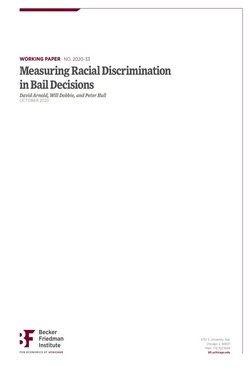By Washington State Statistical Analysis Center
This project seeks to discover whether exclusionary discipline and later criminal justice system involvement are associated, and to determine whether race, sex, and homelessness are confounding factors. The Washington Statistical Analysis Center (SAC) applied for and received the 2018 State Justice Statistics Grant from BJS. Among other projects, the SAC sought the grant to evaluate the connection between a student’s exclusionary discipline and their future justice system involvement in Washington. This evaluation connects data from schools and the courts to assess the strength of this relationship and examine the influence of other factors (such as race, sex, and homelessness). Here are some of the main takeaways from this report: • Students identified as male were more than two times as likely to be associated with postgraduate convictions as compared to their female counterpart. • Students with any homelessness were 1.7 times as likely to be associated with a post graduate conviction than student with no record of homelessness. • Students identified as American Indian or Alaskan Native were more than two times more likely to have a post-graduate conviction than students identified as other races • Students identified as Black/African American had at least one exclusionary discipline event (25.1%) at nearly twice the proportion of the cohort average (13.6%), with students identified as American Indian/Alaskan Native and Hispanic/Latino not far behind. • Results should be interpreted with caution.
Olympia, WA: Washington STate Statistical Analysis Center, 2022. 11p.






